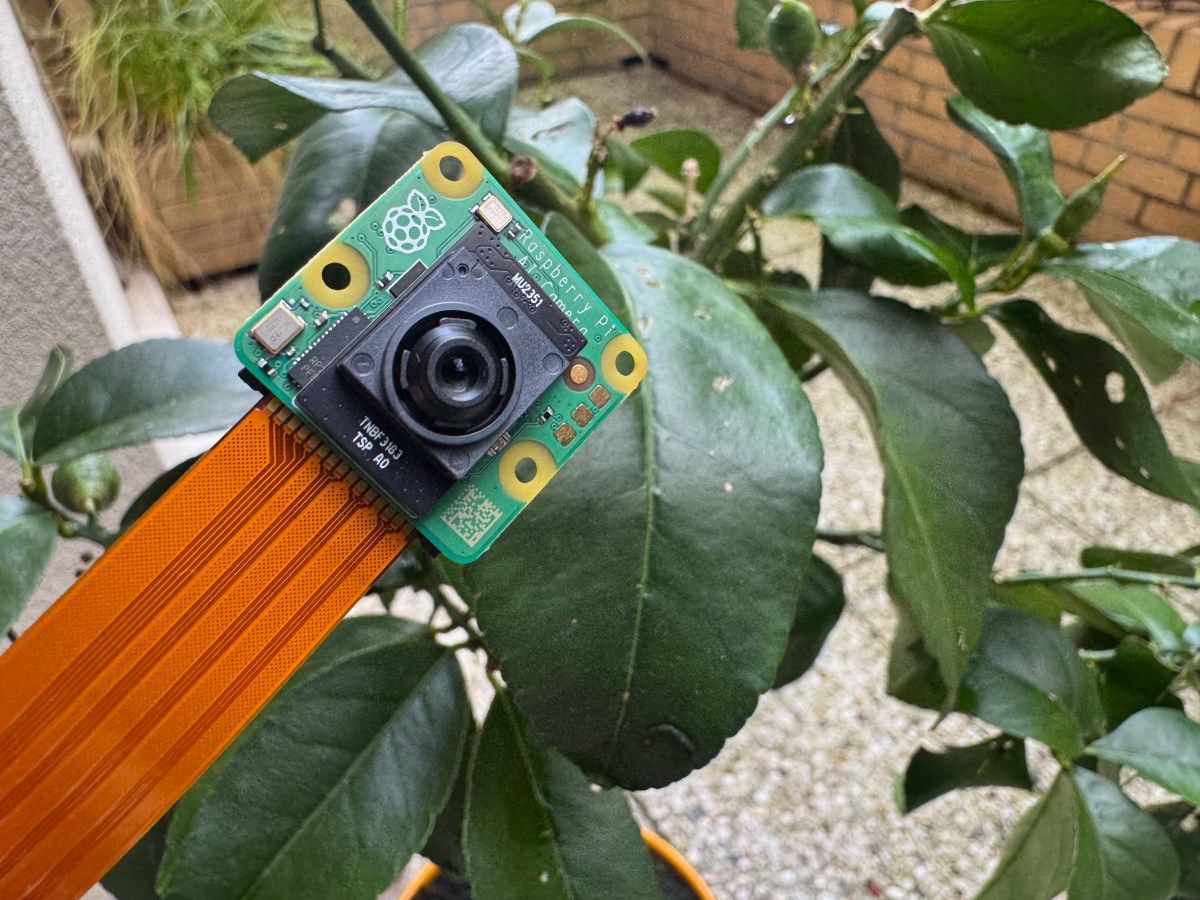Raspberry Pi, the company that sells tiny, cheap, single-board computers, is releasing an add-on that is going to open up several use cases — and yes, because it’s 2024, there’s an AI angle. Called the Raspberry Pi AI Camera, this image sensor comes with on-board AI processing and is going to cost $70.
In more technical terms, the AI Camera is based on a Sony image sensor (the IMX500) paired with a RP2040, Raspberry Pi’s own microcontroller chip with on-chip SRAM. Like the rest of the line-up, the RP2040 follows Raspberry Pi’s overall philosophy — it is inexpensive yet efficient.
In other words, AI startups aren’t going to replace their Nvidia GPUs with RP2040 chips for inference. But when you pair it with an image sensor, you get an extension module that can capture images and process those images through common neural network models.
As an added benefit, on-board processing on the camera module means that the host Raspberry Pi isn’t affected by visual data processing. The Raspberry Pi remains free to perform other operations — you don’t need to add a separate accelerator. The new module is compatible with all Raspberry Pi computers.
This isn’t Raspberry Pi’s first camera module. The company still sells the Raspberry Pi Camera Module 3, a simple 12-megapixel image sensor from Sony (IMX708) mounted on a small add-on board that you can pair with a Raspberry Pi with a ribbon cable. As Raspberry Pi promises to keep production running for many years, the Camera Module 3 will remain available for around $25.
The AI Camera is the same size as the Camera Module 3 (25mm x 24mm) but slightly thicker due to the structure of the optical sensor. It comes pre-loaded with the MobileNet-SSD model, an object detection model that can run in realtime.
At this point, you might be wondering who is going to use the Raspberry Pi AI Camera. While the tiny computers were originally designed for tech hobbyists and homelab projects, Raspberry Pi now sells most of its devices to companies that use Raspberry Pi devices in their own products or as part their assembly lines for internal industrial use cases.
When Raspberry Pi became a public company, it reported that the industrial and embedded segment represented 72% of its sales. That ratio is likely going to be even higher for the AI Camera.
I could imagine companies using the AI Camera module for smart city sensors that detect empty parking spots, say, or track traffic flows. In an industrial environment, the hardware could be used for basic, automated quality assurance with objects passing under the camera module.
The reason why companies like using Raspberry Pi is because they can produce computers and modules at scale — they faced some post-Covid supply constraints but those seem to be resolved. Companies know they can reliability source Raspberry Pi products without suffering delays in a production pipeline. That’s also part of the reason why Raspberry Pi promises that the AI Camera will remain in production until at least January 2028.


